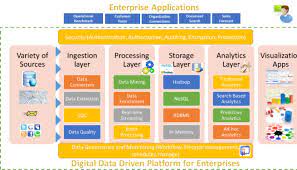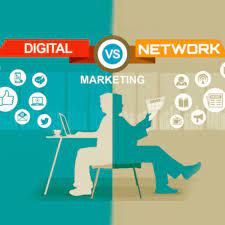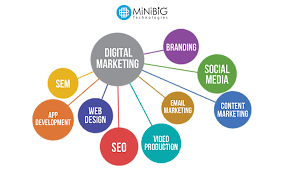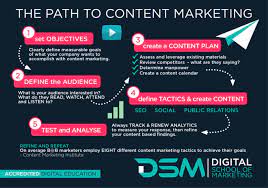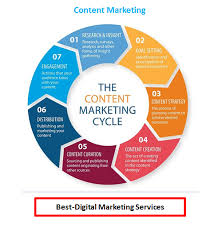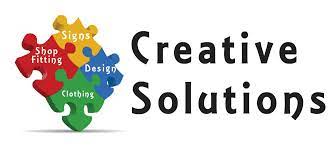The Power of Digital Marketing Analytics
In today’s digital age, data is king. Understanding the performance of your digital marketing efforts is crucial for making informed decisions and maximising your return on investment. This is where digital marketing analytics comes into play, providing valuable insights into the effectiveness of your campaigns and helping you optimise your strategies for success.
What is Digital Marketing Analytics?
Digital marketing analytics involves the collection, analysis, and interpretation of data from various online channels to evaluate the performance of marketing campaigns. By tracking key metrics such as website traffic, conversion rates, engagement levels, and customer behaviour, businesses can gain a deeper understanding of their audience and make data-driven decisions to improve their marketing efforts.
The Benefits of Digital Marketing Analytics
Measure Performance: Analytics tools allow you to track the performance of your campaigns in real-time, giving you insights into what’s working and what’s not.
Identify Trends: By analysing data over time, you can identify trends and patterns that can help you anticipate changes in consumer behaviour and adjust your strategies accordingly.
Optimise Campaigns: With analytics data, you can pinpoint areas for improvement and make adjustments to optimise your campaigns for better results.
ROI Tracking: By measuring the impact of your marketing efforts against your investment, you can determine the return on investment (ROI) of each campaign and allocate resources more effectively.
Key Metrics to Track
When it comes to digital marketing analytics, there are several key metrics that businesses should track to gauge the success of their campaigns:
- Traffic Sources: Understand where your website traffic is coming from – whether it’s organic search, social media, or paid advertising.
- Conversion Rate: Measure how effectively your website converts visitors into leads or customers.
- Bounce Rate: Monitor the percentage of visitors who leave your site without engaging further – a high bounce rate may indicate issues with user experience or content relevance.
- Social Media Engagement: Track likes, shares, comments, and other interactions on social media platforms to gauge audience engagement with your content.
The Future of Digital Marketing Analytics
The field of digital marketing analytics is constantly evolving with advancements in technology and data analysis tools. As businesses continue to harness the power of data-driven insights for strategic decision-making, we can expect to see even more sophisticated analytics solutions that provide deeper levels of insight and personalisation for targeted marketing campaigns.
In conclusion, digital marketing analytics is a powerful tool that empowers businesses to make smarter decisions based on real-time data. By leveraging analytics tools effectively, businesses can drive growth, improve customer engagement, and stay ahead in today’s competitive digital landscape.
8 Essential Tips for Mastering Digital Marketing Analytics in the UK
- Set clear goals and objectives for your digital marketing campaigns.
- Use tools like Google Analytics to track website traffic and user behaviour.
- Regularly analyse key performance indicators (KPIs) to measure the success of your campaigns.
- Implement A/B testing to optimize your marketing strategies based on data-driven insights.
- Utilize heatmaps and click tracking to understand how users interact with your website.
- Monitor social media metrics to gauge the effectiveness of your social media marketing efforts.
- Segment your audience data to tailor personalised marketing messages for different customer groups.
- Stay updated with industry trends and advancements in digital marketing analytics tools.
Set clear goals and objectives for your digital marketing campaigns.
Setting clear goals and objectives for your digital marketing campaigns is essential for success. By defining specific targets such as increasing website traffic, improving conversion rates, or boosting brand awareness, you provide a clear direction for your efforts and enable more accurate measurement of your campaign’s performance. Clear goals not only help you focus your resources effectively but also allow you to tailor your strategies to achieve the desired outcomes. With well-defined objectives in place, you can track progress more efficiently, make data-driven decisions, and ultimately optimise your digital marketing efforts for maximum impact.
Use tools like Google Analytics to track website traffic and user behaviour.
To enhance your digital marketing strategy, it is essential to utilise tools such as Google Analytics to monitor website traffic and user behaviour effectively. By leveraging the insights provided by Google Analytics, you can gain a comprehensive understanding of how users interact with your website, which pages they visit most frequently, how long they stay on each page, and where they come from. This valuable data allows you to make informed decisions about your marketing efforts, optimise your website for better user experience, and tailor your campaigns to target specific audiences more effectively.
Regularly analyse key performance indicators (KPIs) to measure the success of your campaigns.
Regularly analysing key performance indicators (KPIs) is essential for measuring the success of your digital marketing campaigns. By monitoring metrics such as website traffic, conversion rates, and engagement levels, you can gain valuable insights into the effectiveness of your strategies and make data-driven decisions to optimise your campaigns for better results. Tracking KPIs allows you to identify trends, spot areas for improvement, and ultimately maximise the return on investment of your marketing efforts. Consistent analysis of KPIs enables you to stay agile and responsive in a dynamic digital landscape, ensuring that your campaigns are on track to meet your business objectives.
Implement A/B testing to optimize your marketing strategies based on data-driven insights.
Implementing A/B testing in your digital marketing strategy can be a game-changer when it comes to optimising your campaigns based on data-driven insights. By testing different variations of your content, design, or messaging with a sample audience, you can gather valuable data on what resonates best with your target audience. This allows you to make informed decisions on which elements are most effective in driving engagement and conversions, ultimately leading to more successful and impactful marketing strategies.
Utilize heatmaps and click tracking to understand how users interact with your website.
To enhance your understanding of user behaviour on your website, it is recommended to utilise heatmaps and click tracking tools. Heatmaps visually represent where users are clicking, scrolling, and spending the most time on your web pages. By analysing this data, you can gain valuable insights into how users interact with your website, identify areas of high engagement or potential friction points, and make informed decisions to optimise the user experience for better conversions and engagement.
Monitor social media metrics to gauge the effectiveness of your social media marketing efforts.
Monitoring social media metrics is essential to evaluate the effectiveness of your social media marketing efforts. By tracking key metrics such as likes, shares, comments, and engagement rates on social media platforms, businesses can gain valuable insights into how their audience is interacting with their content. This data allows businesses to identify trends, measure the impact of their social media campaigns, and make informed decisions to optimise their strategies for better results. Social media metrics provide a window into the performance of your social media marketing efforts and help you tailor your approach to better resonate with your target audience.
Segment your audience data to tailor personalised marketing messages for different customer groups.
Segmenting your audience data is a valuable strategy in digital marketing analytics that allows you to tailor personalised marketing messages for different customer groups. By dividing your audience into distinct segments based on demographics, behaviour, or preferences, you can create targeted campaigns that resonate with each group’s specific needs and interests. This approach not only enhances the relevance of your marketing messages but also improves engagement and conversion rates by delivering content that speaks directly to the individual characteristics of each segment. Effective audience segmentation can lead to more effective marketing strategies and ultimately drive better results for your business.
Stay updated with industry trends and advancements in digital marketing analytics tools.
To excel in digital marketing analytics, it is essential to stay informed about industry trends and the latest advancements in analytics tools. By keeping up-to-date with emerging technologies and best practices, businesses can leverage new opportunities to enhance their data analysis capabilities and gain a competitive edge in the digital landscape. Continuous learning and adaptation to industry developments ensure that your digital marketing strategies remain relevant and effective in reaching your target audience with precision and impact.

